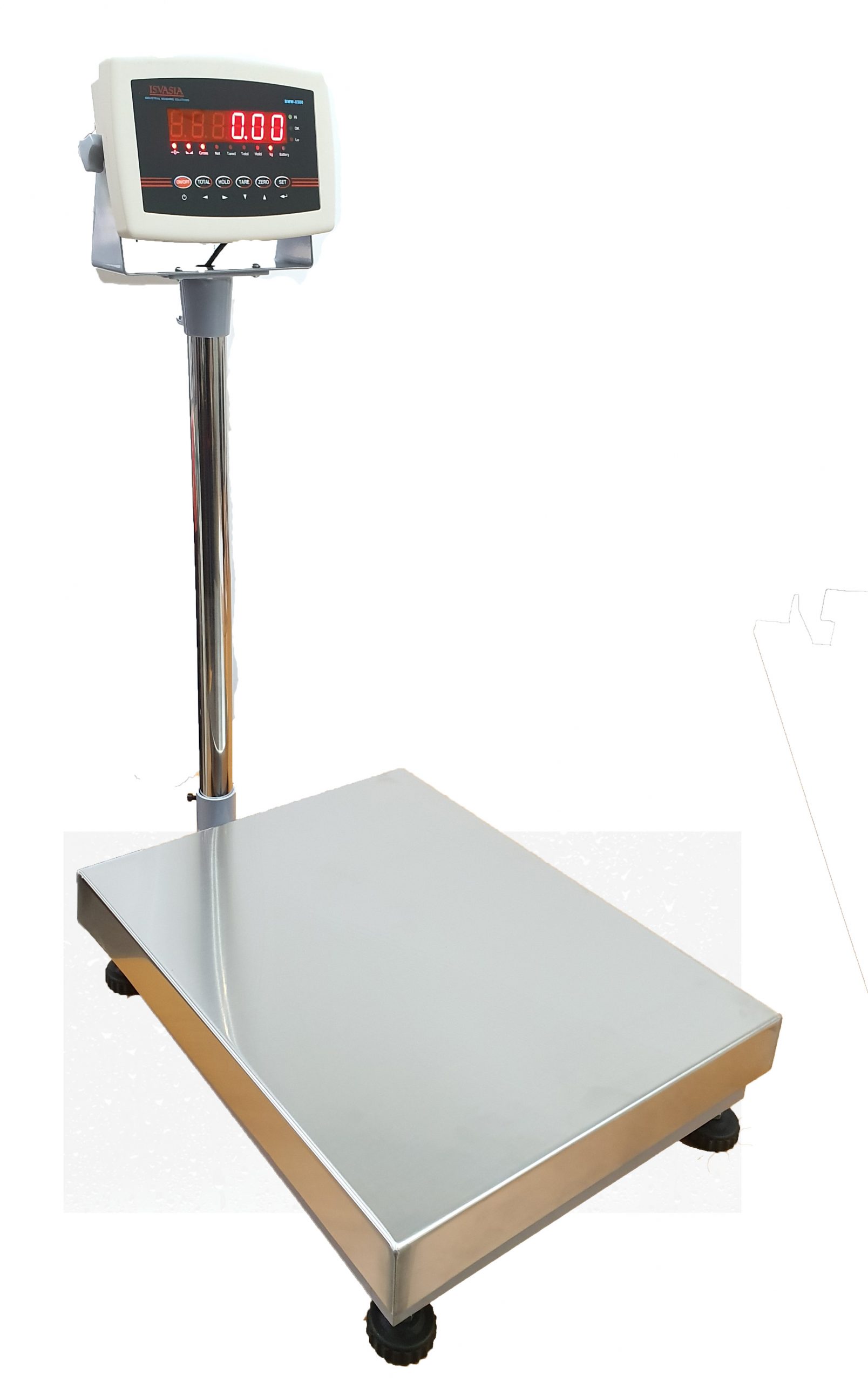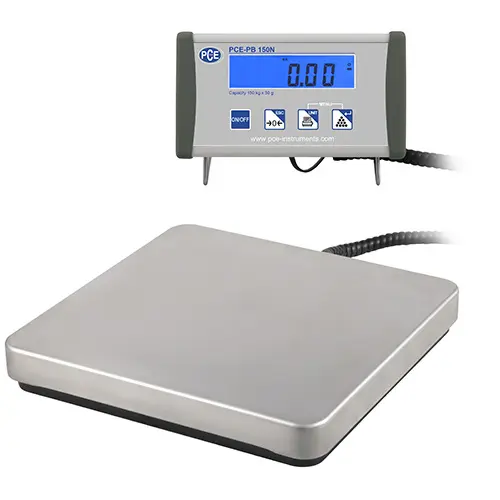Digital vs. Analog Industrial Scales: What You Required to Take into consideration
Digital vs. Analog Industrial Scales: What You Required to Take into consideration
Blog Article
How Commercial Scales Improve Precision in Manufacturing and Logistics
By making sure that materials are weighed properly, companies can reduce errors that could lead to substantial economic consequences. The arrival of sophisticated innovations in considering systems is changing standard processes.
Relevance of Accuracy in Operations
In the world of manufacturing and logistics, precision is the keystone of functional efficiency. Exact measurements are essential for keeping quality assurance, optimizing resource appropriation, and guaranteeing conformity with market criteria. When operations count on exact data, businesses can lessen waste, improve production timelines, and boost general performance.
The importance of accuracy prolongs past easy dimension; it also affects decision-making procedures. Specific weight analyses can identify proper supply levels, enhance supply chain logistics, and promote accurate invoicing. Moreover, inaccuracies in dimensions can bring about costly errors, such as overflow or underestimating material requirements, which can endanger job timelines and profitability.
Furthermore, precision in procedures promotes a society of liability and quality control. By implementing rigorous measurement criteria, organizations can identify inefficiencies and establish renovations, eventually bring about enhanced client satisfaction. In a period where competitors is fierce, the ability to deliver items and solutions with precision can be a distinguishing aspect that establishes a business apart. Therefore, investing in precision dimension tools, such as industrial scales, is not just a technological factor to consider however a calculated important for success in the production and logistics markets.
Types of Industrial Scales
Numerous types of commercial scales play an essential function in attaining the precision required for reliable manufacturing and logistics procedures. Each type is made to satisfy specific needs, guaranteeing exact measurement of items, materials, and elements.
One usual type is the system scale, which supplies a flat surface area for weighing big things or bulk materials. These ranges are commonly used in stockrooms and shipping centers. An additional type is the bench scale, commonly smaller and used for considering private packages or smaller batches of items. These ranges are essential in quality assurance procedures. Industrial Scales.
For applications where accuracy is important, analytical equilibriums are employed. These high-accuracy ranges are made use of in laboratories and research study settings to determine little amounts with utmost accuracy. Floor ranges, made for durable weighing, are ideal for evaluating large pallets or containers, frequently incorporated with forklifts for performance.
Furthermore, load cells are made use of in numerous applications for real-time weight dimension and information collection. Each of these scales adds distinctively to the functional efficiency, ensuring that organizations can preserve accuracy throughout their production and logistics processes. Understanding the types of industrial scales is important for maximizing efficiency and attaining functional excellence.

Impact on Supply Management
Exact evaluating is important for reliable stock management, as it straight affects supply precision and operational performance. In manufacturing and logistics, specific dimension of items and products makes certain that inventory documents mirror actual supply levels, decreasing disparities that can cause overstocking or stockouts. Industrial ranges offer the essential precision to weigh products accurately, allowing services to preserve a reputable inventory system.
Furthermore, exact evaluating adds to much better projecting and planning. With exact information on supply levels, organizations can make enlightened decisions pertaining to procurement and manufacturing schedules. This reduces the danger of excess inventory, which can tie up resources and boost storage prices, along with protect against lacks that might disrupt procedures.
In addition, the integration of commercial scales with stock management systems assists in real-time monitoring of stock movements. This improves the procedure of upgrading inventory documents, improving openness and accountability throughout the supply chain. Ultimately, precise weighing not only sustains reliable inventory monitoring however also drives overall functional effectiveness, allowing services to react swiftly to market demands and preserve an one-upmanship in their respective sectors.
Enhancing Top Quality Control
Effective inventory management not only makes certain ideal stock degrees however additionally lays the foundation for durable quality assurance procedures. Industrial ranges play a crucial duty in improving quality assurance by giving precise weight measurements that are essential for keeping product honesty. Consistent weight verification enables suppliers to comply with requirements, making certain that each thing meets the necessary top quality criteria.
In high-stakes atmospheres, such as food manufacturing or drugs, also minor weight inconsistencies can result in considerable compliance issues. By incorporating industrial scales right into the production line, business can monitor product weights in real time, enabling prompt restorative activities if abnormalities are discover this detected. This proactive method lessens waste and improves total item integrity.
Moreover, exact considering facilitates better solution of raw products, which is crucial in sectors like cosmetics and chemicals. By making certain that component proportions remain regular, suppliers can attain remarkable item high quality, enhancing client satisfaction and decreasing returns.
Future Patterns in Evaluating Technology
The future of evaluating modern technology is poised for significant developments driven by automation, connection, and data analytics. As industries develop, the assimilation of sophisticated sensors and IoT (Internet of Points) capacities will certainly enable real-time monitoring and reporting of weight information. This connection will not only improve operational performance yet additionally facilitate anticipating upkeep, minimizing downtime and enhancing productivity.
Moreover, the incorporation of synthetic intelligence and device discovering algorithms into considering systems will enhance data analysis capabilities. These technologies can determine patterns and abnormalities, enabling even more educated decision-making and maximized supply chain management. The rise of cloud-based solutions will make it possible for seamless information sharing across platforms, making certain that stakeholders have accessibility to up-to-date info at all times.
Sustainability will also play an important function in future evaluating technology. As organizations aim to lessen their carbon footprint, weighing systems that include energy-efficient layouts and products will come to be significantly vital. Additionally, developments in electronic weighing scales will sustain much better resource monitoring by supplying precise measurements that decrease waste.
Final Thought
To conclude, commercial scales dramatically boost accuracy in production and logistics by giving specific weight measurements essential for reliable basics procedures. Their role in stock administration, quality control, and combination with innovative innovations emphasizes their value in maximizing and reducing disparities resource allotment. As industries remain to evolve, the adoption of ingenious weighing remedies will certainly additionally support operational efficiency and lower waste, inevitably adding to improved productivity and competition in the marketplace.
One typical type is the system scale, which provides a flat surface get redirected here area for evaluating huge products or bulk products. Another kind is the bench range, normally smaller and utilized for weighing private bundles or smaller sized sets of products. Flooring ranges, developed for durable evaluating, are optimal for considering big pallets or containers, commonly incorporated with forklifts for performance.
Industrial ranges provide the needed accuracy to consider items properly, making it possible for companies to maintain a reputable inventory system.

Report this page